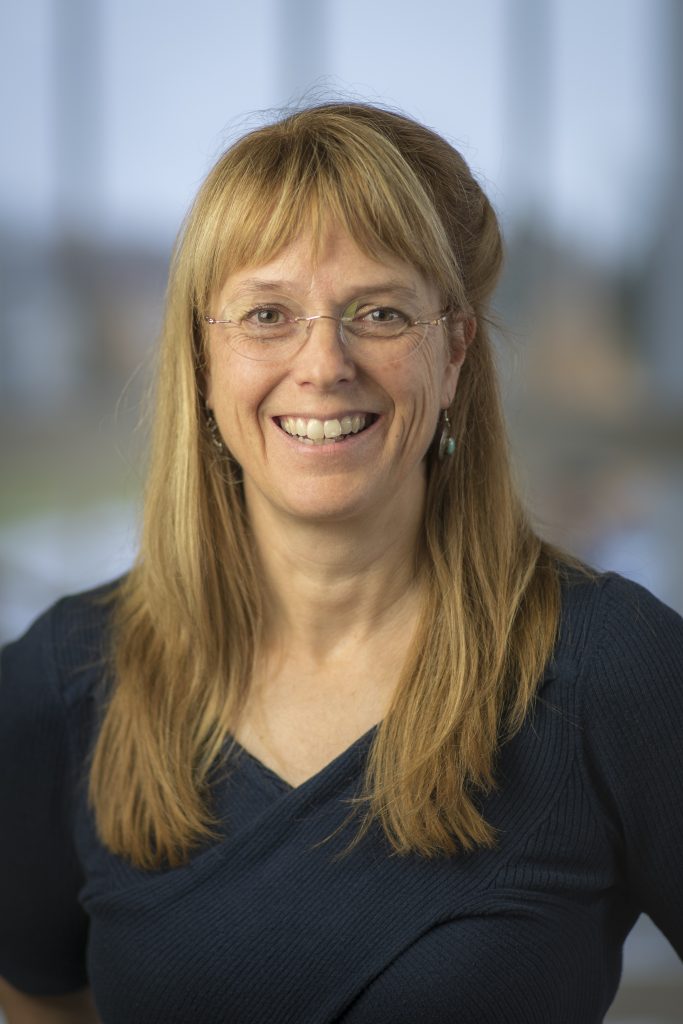Friday Focus: Snowmageddon and pyramids

Jan. 14, 2022
— Nettie La Belle-Hamer, interim vice chancellor for research
For my family, winter holidays have traditionally been a time of celebration and reflection. We enter them with the joy of the holiday season and, then, as we look to the beginning of a new year, we often reflect on dreams, goals, and resolutions. At least that is our tradition. Since we are who we are, this involves spreadsheets. I understand that not everyone does it that way, but I do love a good spreadsheet!
What is not immediately clear is embedded in this tradition is the assumption that we are operating at the top of Maslow’s hierarchy of needs. The top two tiers of the pyramid are esteem and self-actualization. You can operate there when all your physiological, safety, and social needs are met. For a lot of us at the university, this is where we spend most of our mental time and we are comfortable with thoughts of achievement and long-term goals. It is important for us to notice where people are in this hierarchy if we are to effectively teach and mentor them, or even collaborate with them.
I’ve been thinking that, in the context of Maslow’s pyramid, what a wonderful opportunity snowmageddon opened up for us! Within a few hours of this colossal snow/rain/snow storm, we lost power, communication, and transportation normally taken for granted. The descent down the pyramid was abrupt. What are New Year’s resolutions compared to the safety and security of our home? Snowmageddon played no favorites and took no prisoners! We were all in it together, working at a very basic level.
One of the many things I love about Alaskans is that this abrupt slide to the bottom of the pyramid is taken in stride, for the most part, because it happens fairly regularly. We live more connected to nature than many people in the Lower 48 do. So, even though many have the comforts of city life here in the metropolis of Fairbanks, we often find ourselves fighting for our homes, water pipes, driveway, cars, and cellular connectivity. And that’s okay. It can even be fun (in retrospect) and give us bragging rights.
However, I would like to focus on something just a little beyond the bragging rights. Spending time at the bottom of the pyramid, even for a few days, allowed me to remember. It is an opportunity to rebuild empathy and understanding for people who are there every day. Part of the role of a university in society is to help people build their own pyramids to get to the top no matter where they started. To do that, they need the university community to help shore up their physiological and safety needs to allow the growth of their social support system and self-esteem. Only then can open discussions of morality, creativity, lack of prejudice, and striving to achieve long-term goals be an integral part of the university experience.
There is more than one way to look at safety. We have many who have survived eight years of state funding cuts, lacking a feeling of safety and security in their jobs, departments, or units here at UAF. Even though the “storm” may be over, there is still all the clean up required. For snowmageddon, the clean up took longer than the storm itself. For UAF, we don’t have that kind of time!
One of the primary tasks facing this research university is to set goals, prioritize them, and adjust our work to meet them. For some units, the proverbial power wasn’t out the whole time, the snowplow showed up, and they had a backup heat – these are the units who have weathered the storm from the top of their pyramid. From the top, long-term planning is natural. But some people had a very different experience with entire units cut or reduced to the point of disfunction. A little grace is needed to ensure our colleagues regain their pyramid so we can strive towards our goals, together.
We need to meet people where they are without judgment. It is easier to do that if you remember that we are all just one snow storm away from the bottom of the pyramid.
Friday Focus is a column written by a different member of UAF's leadership team every week.


